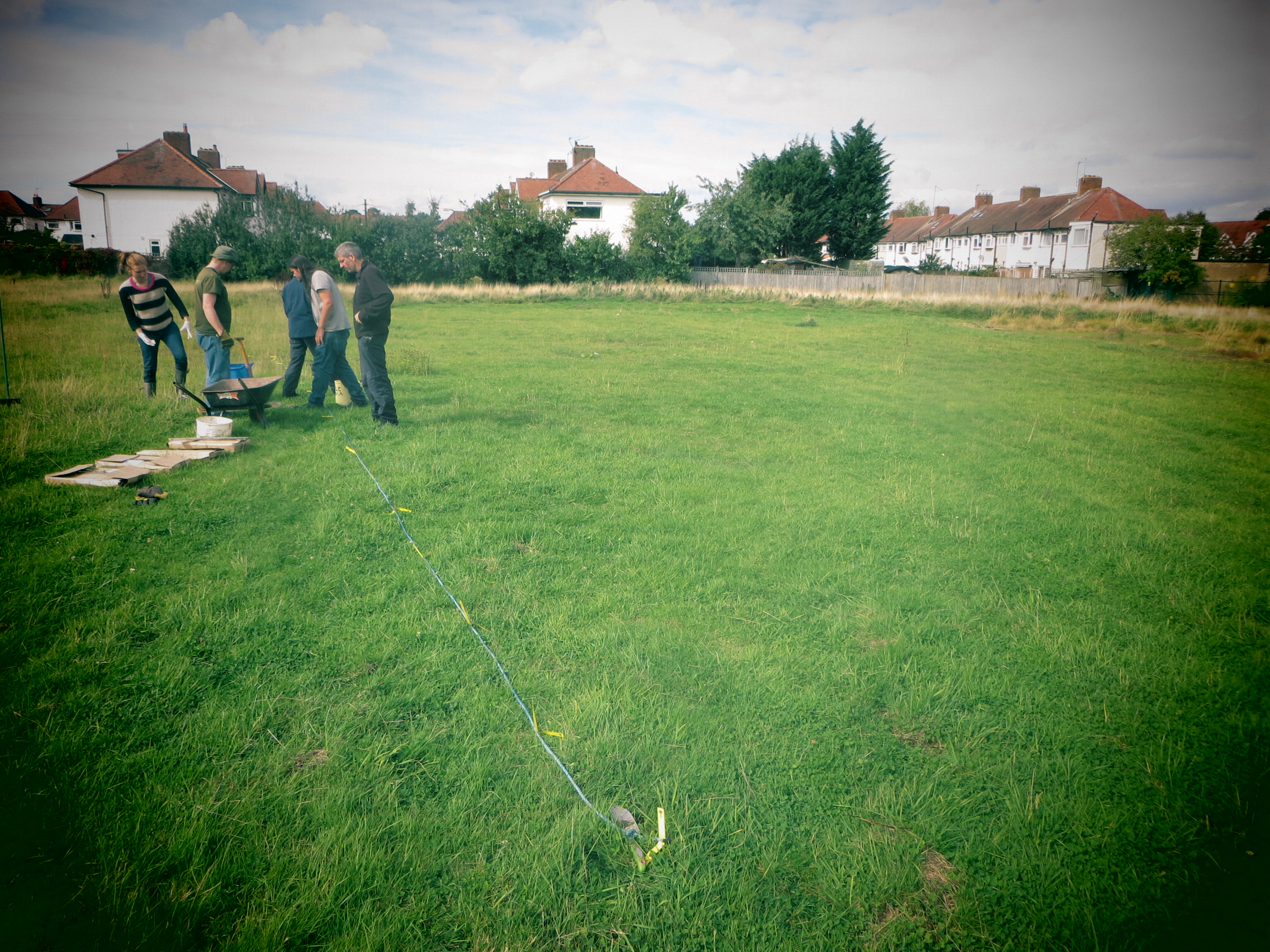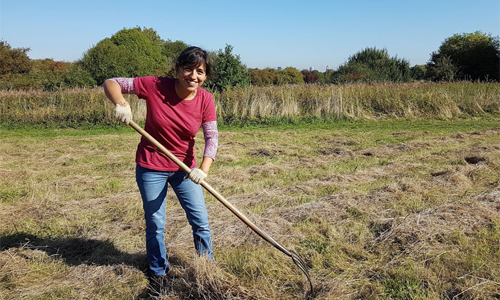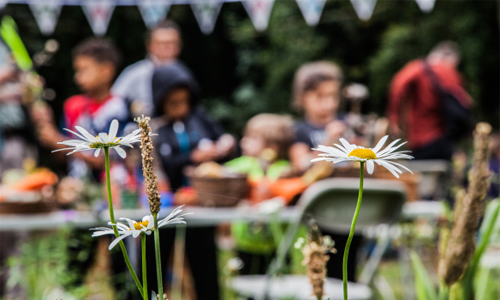In 2013, scientists belonging to 25 nature organisations, worked together to compile a comprehensive stock take of our native species – coined the State of Nature report. Alarmingly, 60% of the assessed species have declined over the last 50 years. In reply to these worrying figures, 26 of the UK’s conservation organisations have combined forces to develop a plan that aims to restore nature in Britain – The Response for Nature report.

Flora Assemblage at Cuddington Meadow
Here, key actions are set out that the Government must include as part of the 25-year biodiversity plan (in their manifesto, the Conservatives set out an ambition to develop a 25 year plan to restore UK’s biodiversity and the natural environment (see page 55 https://s3-eu-west-1.amazonaws.com/manifesto2015/ConservativeManifesto2015.pdf) – so far this includes a withdrawal of subsidies for renewable energy, the removal of the zero carbon homes plan, the loosening of restrictions on fracking in protected areas and proposals that result in the degradation of ‘Special Areas of Conservation’). Having read the Response for Nature report, I found it uplifting and encouraging that the majority of their recommendations are in sync with the work that the SNCV volunteers contribute to.
According to the report, the government must;
- ‘Deliver an ecological network on land’
- ‘Safeguard and restore species’
- ‘Improve the connection of people to nature, to deliver benefits for health and well-being’
- ‘Support people working together for nature’
The work the Sutton’s Biodiversity Team and SNCV volunteers undertake, aims to restore, conserve and improve the conditions of our habitats with the intention of increasing their ecological value. Whether this be through green-haying, seed sowing and plug planting on our grasslands, rotational reed bed removal, blackthorn scalloping, creation of chalk scrapes or holly bashing in our woodlands for example.
By carrying out this work, we are creating a heterogeneous landscape that will provide a diverse set of habitat niches. Within this landscape, there will be niches that will suit the foraging, nesting and breeding conditions for a range of wildlife. Therefore, we are enhancing the potential opportunities for nature to establish and thrive. Moreover, as a result of our efforts, we are working towards delivering an ecological network and contributing to the safeguard and restoration of species. Sightings of small blue Cupido minimus and brown hairstreak Thecla betulae (two species on the Section 41 species of principal importance under the NERC Act in England and UK Biodiversity Action Plan: Priority Species) across our sites a certainly encouraging.
- The small blue butterfly
- A female brown hairstreak, balancing on a yew berry at Cuddington Cemetery
In addition to our benefits to wildlife, I believe the SNCV is contributing to the well-being of both our volunteers and the public. Here are some quotes on this subject which I found relevant and interesting:
- United Nations – “It is in our environment where we find recreation, health and solace, and in which our culture finds its roots and sense of place”
- Report for Nature – “90% feel that our well-being and quality of life is based on nature and biodiversity.”
- UK National Ecosystem Assessment – “The natural world, its biodiversity and its constituent ecosystems are critically important to our well-being”.
Scientific studies support these findings too, suggesting that access to green spaces and natural environments improve our physiological capacity, such as blood pressure, heart rate, stress hormone levels and immune system functioning. As well as physical health, studies also highlight the impact of the natural environment for our mental well being, with access and exposure to our green spaces considered a valuable treatment for anxiety and depression. This leads me to ask whether it is a coincidence that while our wildlife and natural environment has declined, levels of obesity and mental health problems have risen?
Based on the plethora of studies, it seems reasonable to conclude, that by protecting and improving our conservation areas in Sutton, the SNCV are creating opportunities for the public to connect with nature. This connection promotes both physical and mental well-being, which in an ever urbanising nation, where we are subjected to other non-natural distractions, is vitally important to our health.
In our charity, driven by the passion of volunteers and the expertise of Sutton’s Biodiversity Team, we are making progress towards developing a robust, coherent and thriving ecological network. Through this, we are tackling our most pressing social and environmental issues as described by the Report for Nature. We are promoting positive change and activity throughout Sutton, through conserving and improving our natural spaces.

Our volunteers carrying out plug planting on Sutton Common. The efforts of volunteers is essential for conservation in our country.
If you would like to get involved and help working towards improving the ecological value of Sutton, then please do get in touch – the email is sncvvolunteers@hotmail.co.uk.








